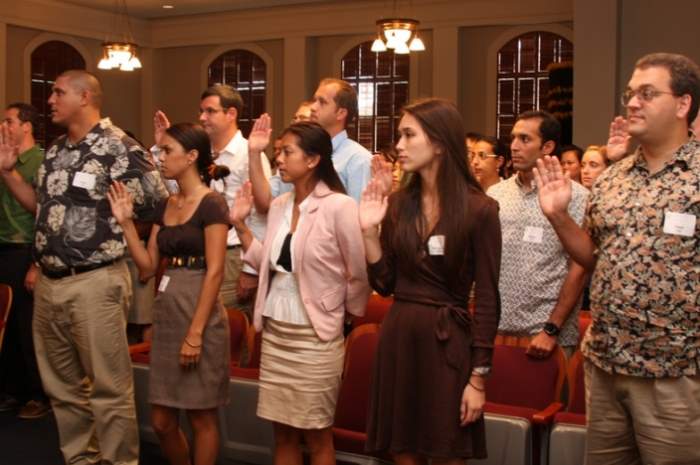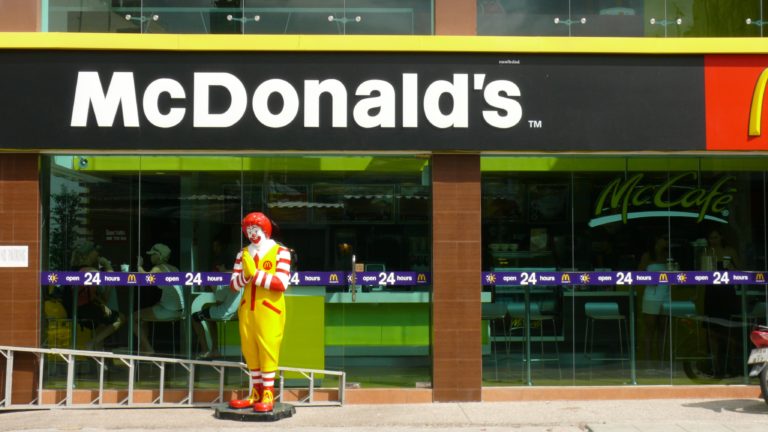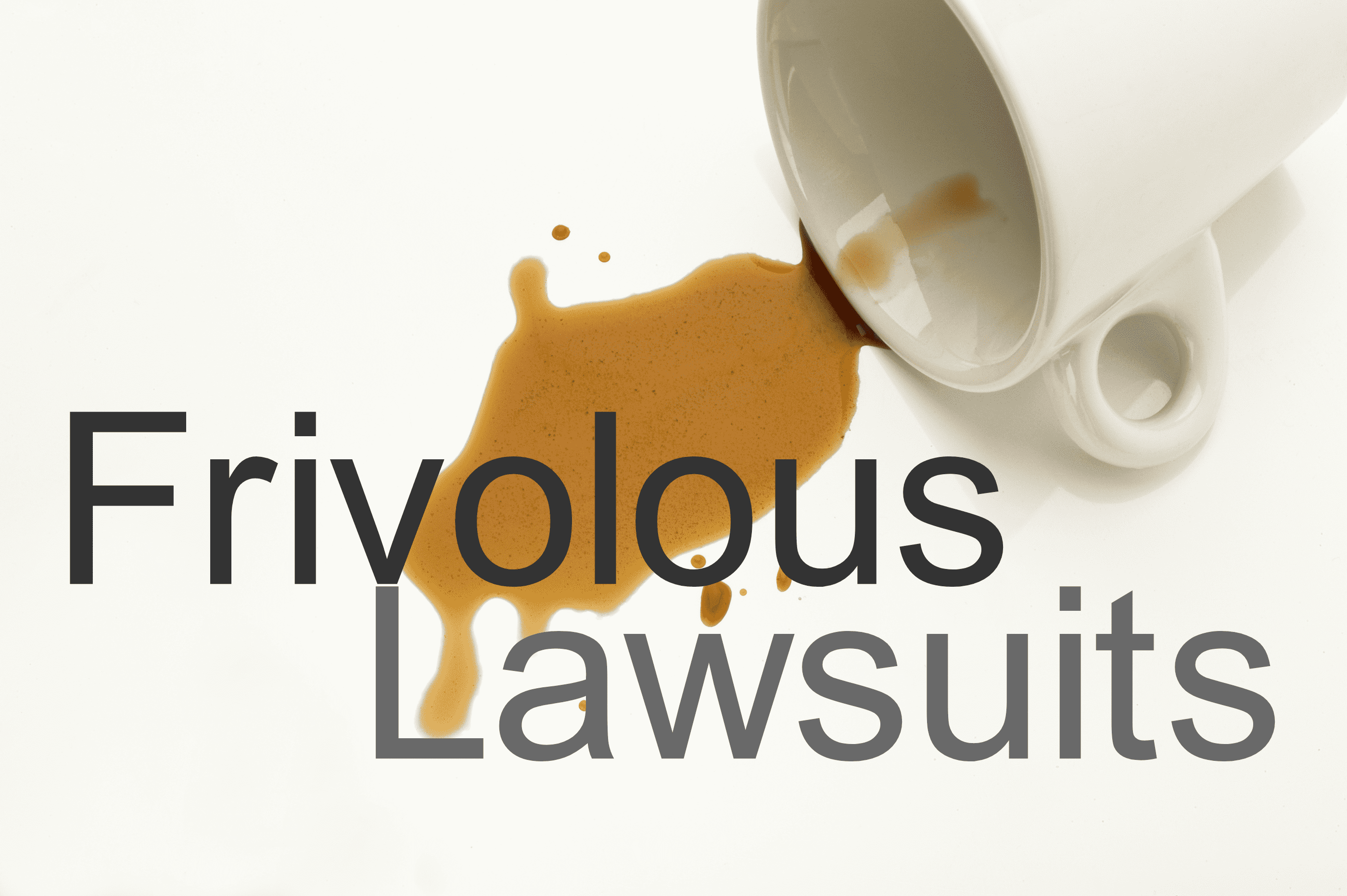Some how, everyone became convinced at once that America’s court system was jam-packed with frivolous lawsuits. But have you eer wondered how everyone in America got that same idea all-at-once?
How Corporations Have Made You Lie For Them
The public’s opinion about lawsuits is often harsh. Words like greedy, avaricious, and frivolous are loosely tossed around in the media. If you took the word of both public opinion and media outlets, it would appear that lawsuits in America are out of control. Online outlets and print media run feature pieces with titles like “Frivolous Lawsuits: A Serious Threat to Nation’s Small Businesses” and “Why is the USA Such a Litigious Society?” If you ask someone on the street what they think about the subject, there’s a good chance that you will get a similar tone. People think that Americans sue over anything and get away with it.
But this is just not the case.
Not only is this an untruth, but the very corporations and insurance companies who fear being held accountable in order to protect their profits are the people who have influenced the public to have this opinion.
Insurance companies, manufacturers of dangerous products and chemicals, the tobacco industry and corporate giants have been working hard to change the public’s opinion about the civil justice system; and they’re very good at it. In every state across the country, these companies have been secretly creating campaigns, organizations, and media campaigns in which they aim to change the laws that protect everyday people who are injured, made sick, and permanently disabled by the greed of these companies. Every law that they change, and every opinion they alter, effects the ability of consumers to be able to hold companies accountable for their actions.
These companies would have you believe that lawsuits are on the rise. They aren’t. They would have you believe that if you spill a cup of coffee you’ll win millions of dollars. That never happened. And they’ll have you believe that these out of control lawsuits are winning people hundreds of thousands of dollars in every case. That isn’t happening either.
In fact, almost everything that the media portrays about lawsuits comes from misinformation campaigns directly funded by big corporations and their giant insurance companies.
The goal of these campaigns is simple: to protect corporations from being held accountable for their reckless behavior and to strip the rights of injured consumers who would otherwise be entitled to compensation.
The way they achieve this goal is by changing laws that protect consumers and by changing public opinion since it will be the public who sits on the jury in a personal injury case. It’s simple enough, and it’s working.

Grassroots Campaigns to End Frivolous Lawsuits
This corporate effort to limit consumers’ legal rights is called tort reform and is led by the American Tort Reform Association (ATRA) in Washington, D.C. ATRA uses “grassroots” lobbying and PR firms to build a network of local organizations that spread anti-consumer information and work to change tort laws.
Some of these organizations are Citizens Against Lawsuit Abuse (CALA), Lawsuit Abuse Watch, Stop Lawsuit Abuse, and People for a FAIR Legal System.
The companies that set up these groups want people to believe that they are homegrown organizations that spring up from a group of citizens who are mad about the abuses of the civil law system. That is definitely not the case. Instead, these campaigning organizations are started, directly funded, and backed by big corporations and tort reform lobbyists.
These so-called “grassroots” campaigns are very good at manipulating the media, the legislative process, the electoral process, and the American public. Just look at the word “reform” which implies “improvement”. In fact, in Microsoft word, that is the first synonym they suggest for the term.
These groups also attempt to hide their funding by claiming they are funded by small donations from private citizens. But in reality, they are financed directly by large corporate donors, like tobacco companies, insurance carriers, oil and gas manufacturers, chemical and pharmaceutical companies, medical associations, giant retailers, and auto manufacturers. Basically, they are funded by pretty much anyone who wants to be protected from consumer lawsuits and accountability in general.
Hardworking Americans Suffer from Frivolous Lawsuits
One of the major tactics these campaigns use is making it appear that ‘the hardworking American‘ is suffering as a result of these so-called frivolous lawsuits. They do this by using radio, television, print advertising, and billboards to spread their message that the consumer is really the one being hurt. This sly deception is designed to appeal to people who really are patriotic and hard-working Americans. That’s why it works. And who doesn’t want to protect themselves from tax increases and higher prices? The very things these groups claim will rise if lawsuits are not brought under control.
As a result, these groups have helped make the supposed need for tort law changes a major political hot button across the country, resulting in corporate immunity laws being enacted in dozens of states.
These companies know that the people who hear or see their ads are the same people who will eventually serve on the juries that make the decisions about whether to award, or not award, compensation to an injury victim. They make Americans believe that the justice system has gotten out of control and that lawsuits weaken the economy and create financial hardship for working people.
Quite frankly, it has worked. Many polls about how Americans feel about lawsuits reflect an aggressive attitude in which people believe that those who file lawsuits are just ‘looking for a payday’.
McDonald’s Hot Coffee Lawsuit
One of the most successful campaigns in the history of misinformation about tort law was the infamous McDonalds hot coffee lawsuit.
When this case was made public, the entire nation almost instantly turned against the elderly lady and her lawsuit, or at least made fun of it. And it turns out, almost everything that is “known” about the case is wrong.
The infamous lawsuit is about an elderly woman who won $2.86million after spilling a cup of scalding hot McDonald‘s coffee on herself. That woman was Stella Liebeck, and her lawsuit turned into a punch line for many news outlets, late-night comedians, and pop stars as the truth was spun and the woman was made out to be greedy.
Everyone thought that woman was driving her car and spilled a cup of coffee on herself. Everyone knows coffee is hot. Then, she sued for a million dollars and won.
In reality, almost everything in that sentence is wrong.
Stella was not driving; her grandson was. They were not moving; they were parked. She did not win millions of dollars; she was awarded somewhere in the ballpark of $500,000.
The misinformation was thorough.

After she spilled the coffee on her lap, the 79-year-old woman had third-degree burns on her groin, legs, and genitals. Those burns covered 16% of her body. Because of these burns, she spent a week in the hospital being treated and accumulated over $20,000 in medical expenses and lost income.
If the public had seen the images of Stella’s burns, they may not have been so quick to judge. [You can see them by clicking this link, but WARNING, they are quite graphic.]
Why? Because at that point in 1992, no jury in New Mexico had ever sided with a plaintiff in a personal injury case. They knew that public opinion was against this woman and they were betting on it.
All Stella wanted was for the restaurant to lower their coffee temperature in their stores and to pay the remainder of her costs.
McDonald’s strategy backfired in court. Once the jury—and the judge—saw the photos of her burns and heard that McDonalds new about over 700 other cases in which people were burned and did nothing about it, they were outraged.
McDonald’s Lied About Lawsuit
The jury decided to order the restaurant chain to pay Stella’s $160,000 in medical expenses and compensatory damages. But before the trial was over, incensed by the negligence and injuries, the judge ordered the jury to consider punitive damages (money aimed at making McDonalds learn a lesson).
The jury decided to make McDonalds pay Stella two days’ worth of coffee sales. It was that amount that totaled 2.7 million dollars.
The judge later reduced that amount to $640,000.
She went home with even less than that.
Another point that upset the jury was that McDonald’s company policy was to brew their coffee between 180 degrees and 190 degrees. This was a business decision aimed at extending the products shelf life. An expert witness specializing in thermodynamics and burns testified that any liquid at that temperature causes third-degree burns in three to seven seconds.
McDonald’s even admitted that it had known about the risk of serious burns from its scalding coffee for more than 10 years, as evident by their ‘700 burns’ argument. (They tried to say that since only 700 people have been burned out of billions of cups sold, the number was statistically insignificant. This angered the jury even more.)
McDonald’s own quality assurance manager testified that McDonald’s coffee, at the temperature they served it, was not fit for human consumption—because, it would burn the customers mouth and throat.
So why did nobody know the details of the case and the truth behind the lawsuit? Because Stella was contractually obligated not to speak about the details of the case in a confidentiality agreement she signed with McDonalds. This almost always happens in lawsuits with big companies because they don’t want the truth to be available. Have you ever heard the phrase “an undisclosed amount”?
Civil Cases are NOT on the Rise
One of the most popular misconceptions about personal injury cases that these corporations have been successful in disseminating is the idea that personal injury cases are often meritless. The fact is, if a case is frivolous or meritless, almost no attorney will take the case. They’d be impossible to win and tarnish their reputation.
Likewise, if a case does make it to a settlement, there is a reason it did. Big corporations and insurance companies retain some of the best lawyers in the country, so you can be sure they’re not letting their clients be scammed by a deceitful lawsuit. If they pay anything, it’s because there is merit.
The courts see far fewer personal injury cases than the public believes.
You Can’t Win a Lawsuit
These corporations would also have you believe that if you are injured, it’s almost impossible to actually receive any money. This is not true also. Yes, insurance companies will fight tooth-and-nail to save their profits, but they do pay if they’re pressured into it. Making the public believe they won’t win anything even if they try is the goal since it often prevents people from trying in the first place. That is how they want it.
People also aren’t consistently winning hundreds of thousands of dollars from insurance companies. Which means that’s not the reason why your premiums are going up. In fact, premiums rise for one reason, to increase profits for shareholders.
Half of all personal injury plaintiffs who actually win their case are awarded $24,000 or less in damages. And the punitive damages that the judge asked for in the McDonalds case? Well, they are only sought in 9% of tort trials in which the plaintiff wins. And if the company is ordered to pay punitive damages, the average amount is only $55,000.
Holding Negligence Accountable
If someone has been negligent—and that negligence has caused physical, emotional, and financial injuries—then that person should be held accountable. If a company knew their product was dangerous and did nothing about it, they should take responsibility for the consequences. It’s really quite simple. And it’s the reason we all pay for insurance.
When companies hide behind lies, corporate-protecting laws, and smear campaigns, they are doing us all a disservice. In reality, it is not frivolous lawsuits that are costing Americans money. It is something wholly different. When we, as the American public, do not force these companies to take responsibility for their actions or do not expect insurance companies to pay for our damages, we are risking our safety, our money, and our liberties.
Not all injuries warrant a big settlement. And not all people who file a lawsuit are honest. But the reality is, many people are injured every day because of negligence. These victims face growing medical bills, emotional trauma, and financial hardships that threaten them with bankruptcy. Why should they have to recover physically, rebuild their life emotionally, and deplete their life’s savings to pay for it? They shouldn’t.
Dolman Law Group Accident Injury Lawyers, PA
800 North Belcher Road
Clearwater, FL 33765
(727) 451-6900
https://www.dolmanlaw.com/legal-services/
Sources:
“The McDonald’s Hot Coffee Case.” Consumer Attorneys of California.
Cohen, Thomas H. “Tort Bench and Jury Trials in State Courts.” 2005.






